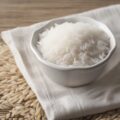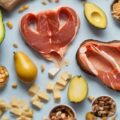Ever wondered what dietitians, the experts in nutrition, actually eat to stay healthy and fit? While they guide us on the best dietary practices, it’s insightful to learn about their personal choices. This article delves into the foods that dietitians actually include in their daily diets for optimal health and well-being.
Whole Grains
Whole grains are a staple in many dietitians’ meals. Foods like quinoa, brown rice, oats, and whole wheat bread are rich in fiber, vitamins, and minerals. These nutrients are essential for digestive health, sustained energy levels, and overall well-being. Whole grains also have a low glycemic index, helping to maintain steady blood sugar levels.
Leafy Greens
Leafy greens such as spinach, kale, and arugula are frequent choices for dietitians. These greens are packed with vitamins A, C, and K, as well as calcium and iron. They are low in calories but high in fiber, making them perfect for maintaining a healthy weight and supporting digestive health.
Lean Proteins
Dietitians often include lean proteins like chicken, turkey, tofu, and legumes in their diets. These proteins are crucial for muscle repair and growth, as well as keeping you full and satisfied. Lean proteins are lower in saturated fats compared to red meat, making them a heart-healthy option.
Healthy Fats
Not all fats are created equal. Dietitians prefer healthy fats found in avocados, nuts, seeds, and olive oil. These fats are essential for brain health, hormone production, and reducing inflammation. Including healthy fats in your diet can also help improve cholesterol levels.
Colorful Vegetables
Colorful vegetables like bell peppers, carrots, tomatoes, and beets are often seen on a dietitian’s plate. These vegetables are rich in antioxidants, which help combat oxidative stress and reduce the risk of chronic diseases. The vibrant colors also indicate a wide range of nutrients that support overall health.
Fermented Foods
Fermented foods such as yogurt, kefir, kimchi, and sauerkraut are beneficial for gut health. Dietitians understand the importance of a balanced microbiome for digestion and immunity. These foods are rich in probiotics, which help maintain a healthy gut flora.
Frequently Asked Questions (FAQ)
Do dietitians avoid all processed foods?
While dietitians aim to eat whole, unprocessed foods most of the time, they understand that balance is key. They may occasionally include minimally processed foods in their diet, focusing on those with clean ingredient lists.
How do dietitians handle cravings?
Dietitians manage cravings by allowing themselves occasional treats in moderation. They also focus on eating balanced meals that include protein, fiber, and healthy fats to stay satiated and reduce cravings.
What is the most important meal of the day for dietitians?
Many dietitians consider breakfast to be the most important meal. A nutritious breakfast can kickstart metabolism, provide essential nutrients, and set a positive tone for the rest of the day.
Do dietitians follow specific diets?
Dietitians may follow various dietary patterns based on their health needs and preferences. However, they generally emphasize balanced eating, incorporating a variety of foods from all food groups.
What snacks do dietitians prefer?
Dietitians often choose healthy snacks such as fruit with nut butter, hummus with veggies, Greek yogurt, and a handful of nuts. These snacks provide a good mix of protein, fiber, and healthy fats.









